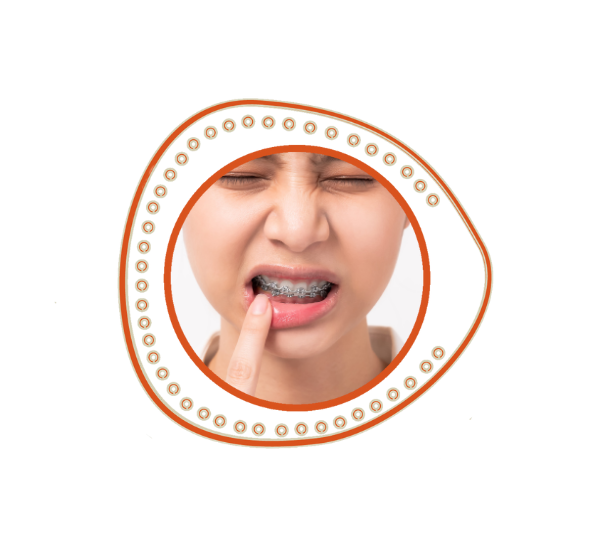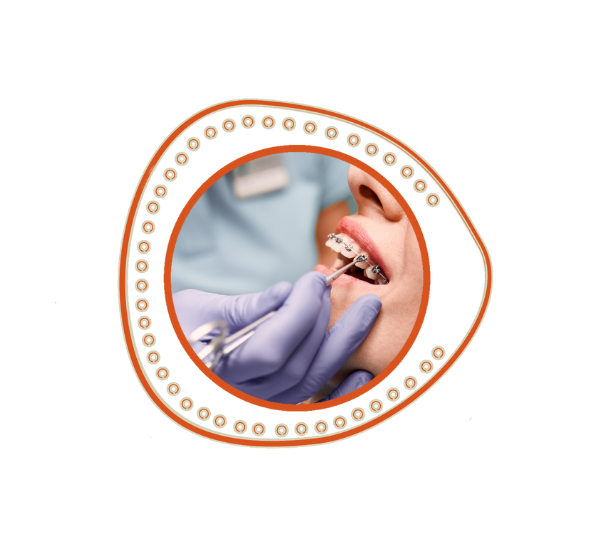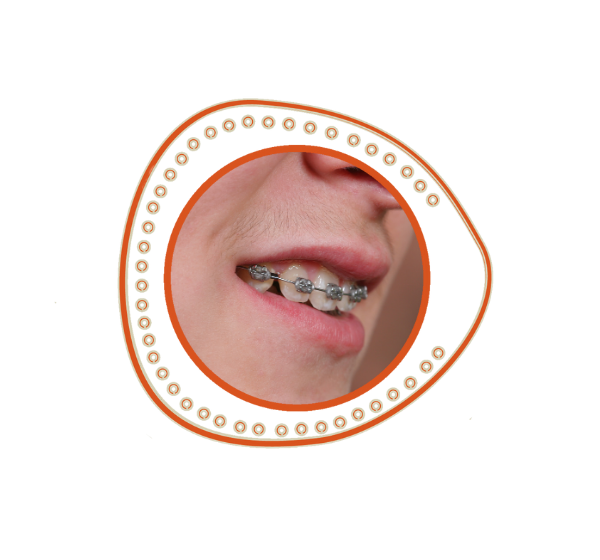
How To Take Care Of Braces
You Have Questions. We Have Answers.
Having braces is usually a breeze, but sometimes little things can happen that make it uncomfortable – at least until you can come into the office to be checked out. Below are some of those things and some suggestions for how you can take care of them at home. Remember to communicate any concerns or discomfort with us promptly so we can check your “home” work and get you scheduled to come in if we need to see you.
Pain Or Discomfort
One of the most common issues with braces, especially after adjustments, is pain and discomfort due to the pressure exerted on the teeth and gums.
- Solution: Over-the-counter pain relievers like ibuprofen can help alleviate discomfort. Rinsing with warm salt water may also provide relief. Orthodontic wax can be applied to brackets and wires that are causing irritation.


Broken Brackets Or Wires
Brackets may come loose from the teeth or wires may break, leading to discomfort and potential disruption of the treatment process.
- Solution: Contact Feller Orthodontics immediately for an appointment to have the bracket or wire repaired. In the meantime, orthodontic wax can be used to cover any protruding wires or loose brackets to prevent irritation.
Poking Wire
Occasionally, the wires of braces may protrude and poke the inside of the mouth, causing irritation and discomfort.
- Solution: Use a clean cotton swab or the eraser end of a pencil to gently push the wire back into place. If this doesn’t work, cover the protruding end with orthodontic wax and schedule an appointment with us for adjustment.


Difficulty Eating
Initially, eating with braces may be uncomfortable or challenging due to soreness and the presence of brackets and wires.
- Solution: Stick to soft foods that require minimal chewing, such as soups, mashed potatoes, yogurt, and smoothies. Cut hard or crunchy foods into small pieces to make them easier to eat. Avoid sticky or hard foods that can damage the braces.
Gum Irritation
Braces can sometimes irritate the gums, leading to inflammation and discomfort.
- Solution: Maintain good oral hygiene by brushing and flossing regularly to remove any food particles trapped around the braces. Use a soft-bristled toothbrush and gentle brushing techniques to avoid aggravating the gums. Rinse with an antimicrobial mouthwash to reduce inflammation and bacteria.


Canker Sores
The presence of braces may increase the risk of developing canker sores due to irritation from brackets and wires.
- Solution: Apply a topical numbing gel or rinse with a saltwater solution to alleviate pain and promote healing. Avoid spicy or acidic foods that can further irritate the sores. If canker sores persist, consult your orthodontist for further evaluation and treatment options.
Plaque Buildup
Braces create additional surfaces where plaque and food particles can accumulate, increasing the risk of tooth decay and gum disease.
- Solution: Practice meticulous oral hygiene by brushing after every meal and flossing daily to remove plaque and debris from around the braces. Consider using an interdental brush or water flosser to clean between brackets and wires more effectively. Attend regular dental cleanings to prevent plaque buildup and monitor oral health.


Speech Impediments
Some people may experience temporary changes in speech or difficulty pronouncing certain sounds after getting braces.
- Solution: Practice speaking slowly and enunciating words clearly to adjust to the presence of braces. Reading aloud or practicing tongue twisters can help improve speech clarity. If speech issues persist, consult your orthodontist for guidance.
Allergic Reactions
While rare, some individuals may develop allergic reactions to certain components of braces, such as nickel or latex.
- Solution: If you experience symptoms such as itching, swelling, or rash around the mouth after getting braces, consult your orthodontist immediately. They may need to replace the braces with hypoallergenic alternatives or take other measures to address the allergic reaction.


Loose Bands
In cases where elastic bands are used to help align the bite, they may occasionally come loose or break.
- Solution: Contact your orthodontist for a replacement or adjustment of the loose bands. Avoid trying to fix them yourself, as this can interfere with the treatment progress and potentially cause further issues.
Remember to communicate any concerns or discomfort with your orthodontist promptly to ensure timely resolution and a successful orthodontic treatment outcome.